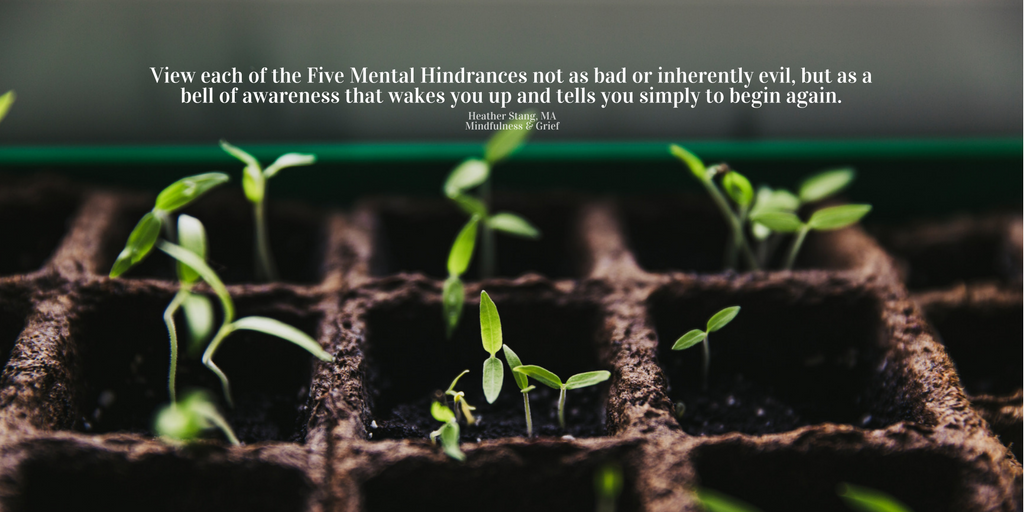
Mindfulness Of Mental Obstacles
Press the play button to stream this audio recording. To download for keeps, click on the three dots to the right of the volume button to download.
Clearing The Path For Wisdom & Insight
In this practice, you will use your mindfulness meditation skills to free yourself from the mental and emotional traps that keep you from being present.
These roadblocks can likely be categorized under one of the Five Mental Hindrances taught in classic Buddhism. They are timeless and universal causes of suffering, and each of us encounters them at some point in our lives.
Most of us have one or two hindrances in particular that keep showing up. Instead of feeling stuck or doomed to repeat the past, you can now make skillful choices when you encounter these roadblocks.
Below are the traditional remedies for the hindrances. R.A.I.N., compassion meditation, and your self-kindness mantra can work too.
Sensual Desire & Greed: Reflect on how what you crave will only bring about temporary pleasure. If what you want is harmful (i.e., a whole bag of potato chips), consider the consequences of giving in. If what you are attached to isn’t detrimental, remind yourself how temporary the pleasure will be. If it is impossible to attain, notice the suffering that the craving is causing and imagine what it would be like to be free instead.
Ill-Will, Aversion, Fear: If you are wishing another harm, practice lovingkindness meditations. When you want things to be different than they are, narrow your focus (count your breaths, relaxation response), broaden your focus (sounds outside and in the room), or use the R.A.I.N. technique.
Sloth (Physical)/Torpor (Mental): Start by sitting up straighter, focusing more on your breath. Open your eyes, look at a light, stand up. Explore why you are sleepy (nutrition, poor sleep, etc.) and tend to it, or dull (aversion, avoidance, fear). Move your body.
Restlessness, Anxiety, Worry: Focus by counting your breath, practice lovingkindness meditation, smile, or shift your focus to sound. Walking meditation and mindful movement can also be a good remedy.
Skeptical Doubt: Reflect on the unanswered questions you have. Then if you cannot find a suitable answer, either with a teacher or through your own research, put doubt aside and continue to practice with faith that it will work.
